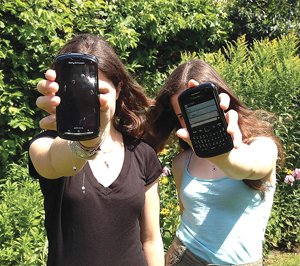 Have you noticed people smoking e-cigarettes? They look like high-tech versions of conventional cigarettes, but there’s no smoke. People can put a variety of substances inside these slim electronic cartridges and inhale them as vapour. There is no smoke at all, so users commonly refer to it as “vaping” instead of smoking.
Have you noticed people smoking e-cigarettes? They look like high-tech versions of conventional cigarettes, but there’s no smoke. People can put a variety of substances inside these slim electronic cartridges and inhale them as vapour. There is no smoke at all, so users commonly refer to it as “vaping” instead of smoking.
Some medical experts argue that e-cigarettes are a good alternative to conventional cigarettes for addicted smokers (although others, such as the Mayo Clinic advises against it). Users still get their nicotine hit, but they avoid the 3,000+ toxic compounds in tobacco cigarettes, and they don’t seem to be producing exhalations dangerous to those around them. Medical research has lagged behind the growth in popularity of e-cigarettes, so we are still waiting for more definitive answers.
But there is little question these high-tech alternatives are bad for kids, because they still involve nicotine, one of the most powerfully addictive drugs out there. No one wants their kids to end up saddled with this difficult, costly lifetime habit.
For parents, the biggest concern is that e-cigarettes may undo decades of effective anti-smoking public health education. And adults who may have hid their smoking from kids (or been forced to avoid their habit in public places like restaurants, bars, workplaces and hospitals), may use e-cigarettes openly without realizing they are normalizing this behaviour for children and teens.
So what should parents do to educate their kids? Read more about e-cigarettes and kids by clicking on this article from the April issue of Montreal Families Magazine.



